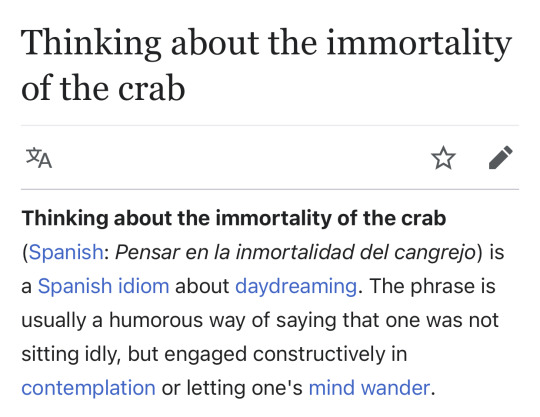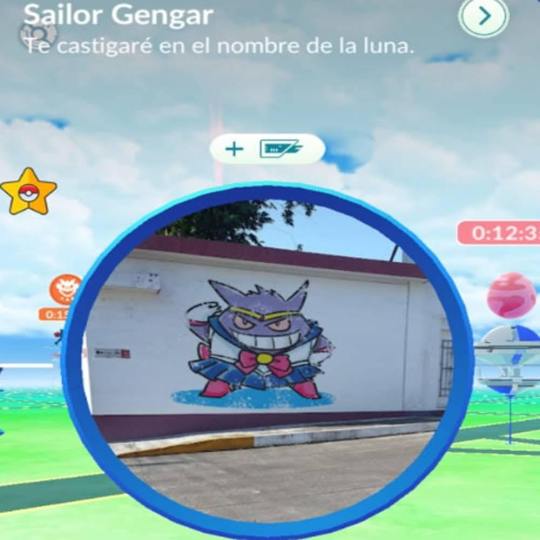#Spanish
Text
370 notes
·
View notes
Text
#all for the game#floral#miles teller#Spanish#[art#witch aesthetic#ringo starr#zombies#gtr#blue moodboard
122 notes
·
View notes
Text
#waifcore#justin bieber#letras#all for the game#bookshelf#floral#coronavirus#90s music#Spanish#lifestyle#witch aesthetic
132 notes
·
View notes
Text
This video is clearly not meant for Basque people, but for Spaniardas that don't know Euskara. It's just an example of how Spanish fascists spread Basquephobia.
The members of Bildu celebrated their elections results with the expression "Jo ta ke". But do you know what it really means? Jotakes are grenades designed and developed by terrorist band ETA in the years 1987-88. They were used in attacks like the one against the headquarter houses of Zarautz on Aug 7th 1987. They were also used in the attack against the headquarter houses of Mungia on March 23rd 1991. In fact, ETA former leader Txapote used this same expression during a trial at the National Audience. This expression was popularized by ETA-supporting band Su Ta Gar and that's why now it's used in different contexts meaning "hit it hard until victory". What do you think about Bildu now using this saying?
[x]
Jo ta ke means, literally, hit and smoke. It's believed it comes from what was said at the iron factories: hit (the iron) and then burn, hit (the iron) and the burn, all the time until the work was done. With time, it became a synonym of tirelessly. So the super usual saying in political or sport contexts Jo ta ke irabazi arte! just means Tirelessly or non-stop until victory.
It existed long before Su Ta Gar's song ffs.
The grenades were called jotakes because of this same meaning: we keep going towards victory non-stop, as the weapons were means for ETA to achieve their goals.
Jo ta ke - and Basque language in general - isn't something that was born for ETA or ETA-supporting environments as these fascists like to make people believe, once and again. They're indeed jo ta ke until more and more people hate Basques. Luckily, many know better but still this is plain misinformation and blatant Basquephobia.
They're just bitter EH Bildu had an incredible result at the Basque elections and because ~70% of Basque votes were for Basque nationalist parties.
#euskal herria#basque country#pays basque#pais vasco#euskadi#spain#fatxis gonna fatxing#politics#video#euskera#euskara#basque#languages#spanish#basquephobia
56 notes
·
View notes
Text

Duke, -duce, Herzog & ziehen
Duke comes from the Latin word dux (leader). It's related to the verb dūcere (to lead; pull), whence English -duce, for example in to seduce (whose original Latin meaning was 'to lead astray').
The second part of German Herzog (duke) is cognate to dux. This part, -zog, is related to the German verb ziehen (to pull), cognate of dūcere.
Old English had cognates of both words. Its counterpart of Herzog was heretoga (army leader). In Middle English it became heretowe, which would've become modern *hartow. The Old English cognate of ziehen was tēon. This verb would've become *to tee if it had continued to exist. See the infographic for information about its past tense and past participle.
#historical linguistics#linguistics#language#etymology#english#latin#french#dutch#german#spanish#old english#old french#old dutch#old saxon#low saxon#old high german#old frisian#frisian#romanian#catalan#portuguese#greek#venetian#gothic#lingblr
29 notes
·
View notes
Text
Yo le llamo arte a todo aquello que de alguna manera nos devuelve a la vida.
-Elena Poe.
#Poesía#Poema#escrita#escritos#Leer#Libro#Literatura#Autores#Citas en#citas en español#citas en tumblr#Spanish#Textos#citas#pensamientos#notas#frases#versos#amor#Frases#frases en español#frases y pensamientos#Fragmentos
24 notes
·
View notes
Text
Es mejor un día menos de vida siendo feliz, que un día más sumido en amargura.
-Yulizie
#frases#frase#tumblr#texto#textos#cita#citas#palabras#palabra#pensamiento#pensamientos#tumblr en español#frases tumblr#mis frases#escrito#escritos#escritos motivadores#motivación#felicidad#se feliz#spanish tumblr#quotes in spanish#spanish quotes#spanish#frases en español#yulizie#yulizielove#poeta#artista#official
20 notes
·
View notes
Text
Sigo mirando tu reflejo por todos lados, sí, es un triste recuerdo de mi ayer.
#frases#emociones#sentimientos#pensamientos#vida#fragmentos#naturaleza#citas#amor#amor y dolor#penas y penas hay dentro de mí 🎵🎵🎵🎼🎼#quotes#phrases#spanish#en tu orbita
21 notes
·
View notes
Text
dear non-spanish speakers writing spiderverse fanfiction (or anything with spanglish),

in spanglish you don’t switch by word, you switch by phrase.
it’s not:
“[first part of the sentence in english], [second part of the sentence in english], mi amor.”
“[full english sentence], querida.”
it’s:
“[first part of the sentence in english], [segunda parte de la frase en español], mi amor.”
-
also miles is boricua, miguel is mexican. they have two different accents and use different vocabulary for certain words.
also miles is “nyourican” - a puerto rican native to new york - while his mom is directly from the island, so there are differences there, too, because his spanish is more influence by new york english. 
here’s some good references that aren’t google translate (which usually pulls from spain, a country that speaks vastly differently from latin america)
SpanishDict
WordReference
here have some random videos on different slang/spanish accents:
Puerto Rico
Mexico (1) (2)
-
in spanish most words are gendered, so most feminine words end in a and masculine/gender neutral words end in o. adding ito/ita makes something cuter, smaller and more affectionate.
spanish nicknames that aren’t “mi amor”
“querido/a” - darling
“cariño” - dear (always masculine regardless, of who its being said to)
“mi princesa/príncipe” - my prince/princess
“mi rey/reina” - my king/queen
“papí/mamí” - can be used in any way; romantic, sexual, familial for one’s parent or child, or just platonically
“tesoro” - treasure
also spanish is a language that uses adjectives as terms of affection both cute ones and ones that might sound insensitive in english
gordo (fat), flaco (skinny), negro (black), blanco (white), linda (pretty), bella (beautiful), morena (brown skin), etc.
and like most languages that are not english, spanish has multiple ways of saying i love you.
“te amo” - romantic
“te quiero” - familial, platonic (although there’s nothing wrong with using it romantically)
see also:
te adoro - i adore you
te deseo - i want you
te necesito - i need you
 and, of course, they can vary regionally too.
please use this because i have read a lot of really well written things that take me out of it because the use of spanglish is terrible. don’t just go on your presumptions that spanish/spanglish works in the same way that english does.
buena suerte, gringos.
- signed your friendly neighborhood afro-latina

#Miguel O’Hara#miguel o’hara x reader#miguel o’hara x black reader#x black reader#x black!reader#x latina!reader#x latina reader#spanish#spanglish#miles morales#miles g morales#miles g#Rio morales#Spider-Man#spiderverse#atsv#spider man: across the spider verse#across the spiderverse#spiderman into the spiderverse#into the spider verse#oscar isaac#pedro pascal#español#fanfic#fanfiction#x reader#puerto rico#nyc#Mexico
26K notes
·
View notes
Text
In the Spanish Gravity Falls dub, the “My ex-wife still misses me..but her aim is getting better!”
Is translated as “My ex-esposa todavía me quiere…¡me quiere matar!”
Roughly translating to “My ex-wife still wants me… wants me dead!”
#Being one of the first jokes I understood in Spanish I was in hysterics over this#it’s a dumb joke#it has a place en mi corazón#spanish#translation#gravity falls#it’s a bit more intense than the English one tbh#Quinn posts#100#500#10k
14K notes
·
View notes
Text

Congo is silently going through a silent genocide. Millions of people are being killed so that the western world can benefit from its natural resources.
More than 60% of the world's cobalt reserves are found in Congo, used in the production of smartphones.
Western countries are providing financial military aid to invade regions filled with reserves and in the process millions are getting killed and millions homeless.
Multinational mining companies are enslaving people especially children to mine.
•••
La República Democrática del Congo vive un genocidio silencioso. Millones de personas están siendo asesinadas para que la parte occidental del mundo pueda beneficiarse de sus recursos naturales.
Más del 60% de las reservas mundiales de cobalto se encuentran en el Congo, y se utiliza en la producción de teléfonos inteligentes.
Los países occidentales están proporcionando asistencia financiera militar para invadir regiones llenas de reservas y en el proceso millones de personas mueren y millones se quedan sin hogar.
Las empresas mineras multinacionales están esclavizando a la gente, especialmente a los niños, para trabajar en las minas.
Street Art and Photo by Artist Eduardo Relero
(https://eduardorelero.com)
#blacklivesmatter#blacklivesalwaysmatter#english#spanish#blackhistory#history#share#blackhistorymonth#blackpeoplematter#black history matters#black history 2023#black history is everybody's history#historyfacts#black history is world history#black history is american history#african history#black history#black history month#modern slavery#knowyourhistory#congo genocide#dr congo#blackbloggers#like#blackhistoryyear#follow#cobalt#blackownedandoperated#culture#art
11K notes
·
View notes
Text

"WAITING FOR YOU TO COME HOME"
NOELIA TOWERS // 2021
[oil on canvas | 30 x 40"]
11K notes
·
View notes
Text

Rafael Romero Barros (Spanish, 1832-1895)
Still life with oranges, 1863
#Rafael Romero Barros#spanish art#spanish#hispanic#latin#still life#bodegon#1800s#art#fine art#european art#classical art#europe#european#oil painting#fine arts#western civilization#europa#mediterranean#southern europe#traditional art#painting#oranges#orange#harvest#spring
9K notes
·
View notes
Text

16th Century Spanish Galleon - Aluminum Foil Sculpture
4K notes
·
View notes

